Visiting research associate Mark Sanchez expounds on the task force detainees of the Philippines
Kritika Kultura (KK), the online international refereed review journal of literature, language and cultural studies of the Department of English, Ateneo de Manila University, featured Mark Sanchez in its lecture series on Feb. 15, 2016 to talk about another angle during the Martial Law period.
Sanchez is a PhD candidate at the University of Illinois, Urbana-Champaign and is a Visiting Research Associate at the Institute of Philippine Culture (IPC) at the Ateneo.
His lecture, “Human Rights and the Task Force Detainees of the Philippines: Religious Opposition to the Marcos Dictatorship,” was about a brief introduction of the Task Force Detainees of the Philippines (TFDP), the reason that drove religious activists to commit themselves to work on the anti-Martial Law movement and how grass roots activism in the Philippines affected other solidarity organizations abroad.
KK editor-in-chief Vince Serrano first gave a brief history of KK and encouraged everyone to look out for the upcoming February issue which will feature critical articles on cultural critique, manga, the career of Epifanio San Jose, special sections on peace, arts and contemporary Filipino essays. He also thanked Sanchez for agreeing to be one of the speakers of the series.
To begin his lecture, Sanchez introduced Sister Mariani Dimaranan, an important person who contributed to the establishment and stability of the TFDP, a non-profit, national human rights organization.
Sr. Dimaranan was a Franciscan nun who helped political detainees during the Marcos dictatorship. She spearheaded getting support from international organizations to fight for human rights and spread awareness of the situation in the country at the time.
Sanchez said that she was a fundamental and tough member of the TFDP, risking her life to provide information to the detainees and send back messages outside. She went from prison to prison, morgue to morgue just to document violation of human rights.
“In 1973, she was even detained for 47 days for suspicion of being a communist and the government used this to discredit her and the work of TFDP,” Sanchez said. “Sr. Mariani detested and said that systematic poverty, hunger and oppression of basic rights were the real issues, not communism.”
Sanchez also showed a video of Sr. Mariani, demonstrating how she was able to sneak in messages by inserting notes in the hems of her clothes and even in her false teeth.
All these documentations, Sanchez said, were heavily documented in the TFDP’s newsletter. They were given some freedom to publish these opposition materials mainly because they were a religious organization and stamped their newsletters with, “For religious use only.”
At some point they were asked to stop the publication, Sanchez said, but the “moral power of the nuns” made it possible to continue publication.
TFDP also covered the most famous hunger strike in 1976 where the political detainees fasted for over 76 days. Sanchez said this upset the Marcos government, leading them to accuse TFDP of publishing one-sided coverages with no government perspectives.
The hunger strikes continued and sparked sympathy strikes elsewhere. This pressured the government even more to a point where the Marcos government attempted to kill the idea of hunger strike and even deny the very existence of political prisoners.
“TFDP highlighted the plight of political detainees all over the world,” Sanchez said and added that campaigns were held to look for more groups that will support human rights for all. “They continued to establish a strong network of support groups but in the center of it all was Filipino grass roots and detainees.”
Sanchez ended his brief lecture, saying that religious groups were indeed vital back then, especially in helping gain the country’s freedom.
“However, there should be local and global balance to highlight the strength of the detainees,” Sanchez said. “In the end, Filipinos took advantage of growing human rights discourse of the period and played an integral role in shaping its needs.”
KK’s next lecture series will be on Feb. 23, 2016 at SEC C (201) with Robert Diaz’s “Re-imagining Cultural Citizenship, Artistic Production in Filipino-Canadian Lives.”
